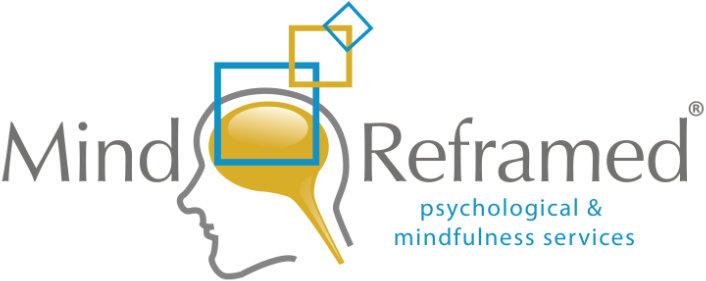Do you ever feel overwhelmed by emotions, struggle in relationships, or react in ways you don’t fully understand—perhaps shutting down, pushing people away, or turning to self-destructive behaviours? Mentalization-Based Treatment is a therapeutic programme designed to help people develop a greater awareness of their own thoughts and feelings, as well as those of others. This process, called mentalizing, allows you to better regulate emotions, navigate relationships with more confidence, and break free from unhelpful patterns.
Why might mentalizing be difficult
Mentalizing is something we develop in childhood through relationships. When a caregiver is attuned to our emotions—helping us make sense of big feelings—we learn to mentalize effectively.
But if, for any reason, you didn’t have that kind of support growing up (due to trauma, instability, neglect, or emotional unavailability), you may have developed other coping strategies to survive overwhelming emotions, such as:
✔ Shutting down – avoiding emotions or withdrawing from others
✔ Self-blame – assuming everything is your fault
✔ Defensiveness or anger – reacting quickly to protect yourself
✔ Self-harm or risky behaviour – using extreme actions to cope
These responses might have helped in the past, but they can make relationships, emotions, and self-understanding more difficult now, and can make it harder to turn to others for support and may limit your ability to mentalize when emotions run high. MBT helps you shift from these automatic patterns to a more reflective, balanced way of thinking and feeling.
How does MBT work?
MBT is a structured therapy that involves both group and individual sessions to help you build emotional resilience and improve your relationships.
✔ Weekly Group Therapy – 90 minutes, online via Zoom on Wednesdays at 6pm-7:30pm
✔ Weekly Individual Therapy – 50 minutes, online or in-person in London (Islington, Queen’s Park or Brixton)
✔ A minimum commitment of 12 months, with the option to continue for up to 18 months if needed
Group therapy is at the heart of MBT. While individual sessions help you explore your personal challenges, the group setting provides a space to practice mentalizing in real-time interactions. This allows you to see patterns in how you relate to others and learn new ways of responding to emotional prompts, making it a great practice ground for managing the sorts of emotionally triggering situations you face in life more generally. For example, you might sometimes disagree with other group members, or find their reaction to you upsetting, but the aim is to try to keep mentalizing together.
Our two experienced MBT therapists actively support and guide the group, helping members feel heard and reconnecting when mentalizing breaks down.
What does MBT help you develop
Throughout the programme, you’ll strengthen your relational skills and transform the way you relate to yourself and others, and develop more:
✔ Curiosity – about your mind and other people’s minds
✔ Emotional flexibility – shifting from rigid or extreme responses
✔ Understanding impact – recognising how your actions affect others
✔ Safe uncertainty – accepting that we don’t always know what’s in others’ minds
✔ Repairing relationships – allowing space for mistakes, accountability and reconnection
✔ Self-responsibility – owning your emotions and actions
These skills help you feel more in control, less overwhelmed, and better able to form meaningful, stable relationships. To find out more about what mentalizing involves please watch this.
Who should join?
You don’t need a diagnosis to benefit from MBT. If emotional struggles or relationship difficulties are impacting your life, this programme may help.
MBT is for those who experience:
✔ Intense mood swings, anxiety, or depression
✔ Difficulty managing emotions, leading to impulsive or self-destructive behaviours (e.g. self-harm, substance use, risky sex, or suicidal thoughts)
✔ Struggles with self-care, prioritising your needs, or setting boundaries
✔ Relationship instability—pushing people away or clinging to them
✔ A fragile or shifting sense of identity
✔ Feelings of emptiness, loneliness, or fear of abandonment
✔ Dissociation or feeling disconnected from reality
✔ Trouble achieving personal goals
If any of these resonate, MBT provides a space to explore and transform these patterns in a supportive, structured environment.
In the medical world, people with these challenges may have been given a diagnosis of Borderline Personality Disorder (BPD). While some find this label useful, MBT takes a deeper approach—looking at what’s going on underneath, rather than just focusing on the symptoms.
How to begin?
The first step is an assessment with one of our experienced MBT therapists. This helps us understand your needs and ensures MBT is the right fit for you.
The process includes:
✔ Up to three assessment meetings to explore your challenges and goals
✔ Three pre-treatment sessions to help you understand key MBT concepts before fully committing
Pre-treatment sessions include:
✔ Recognising when you’re not mentalizing
✔ Identifying your pre-mentalizing modes and your attachment style
✔ Setting personal goals and preparing for potential challenges
You don’t need a referral to join—just reach out via email to arrange an assessment. We also welcome referral letters from professionals you may be having contact with such as your psychiatrist, community mental health team (CMHT), GP, or a previous therapist, however this is not required.
Fees
The full MBT programme starts at £160 per week, covering both weekly individual and group therapy. For full details, please visit the FEES section of this website.
✔ Group therapy: £80 per session, payable in eight-week blocks
✔ To secure your place, a 50% non-refundable deposit is required upon invoicing
✔ The remaining balance is due one week before the next eight-week block begins
✔ Fees apply to all scheduled sessions, including missed or unattended ones
✔ Fees for 1:2:1 therapy sessions are paid directly to your chosen therapist
A limited number of concessionary rates are available for those on low incomes.




